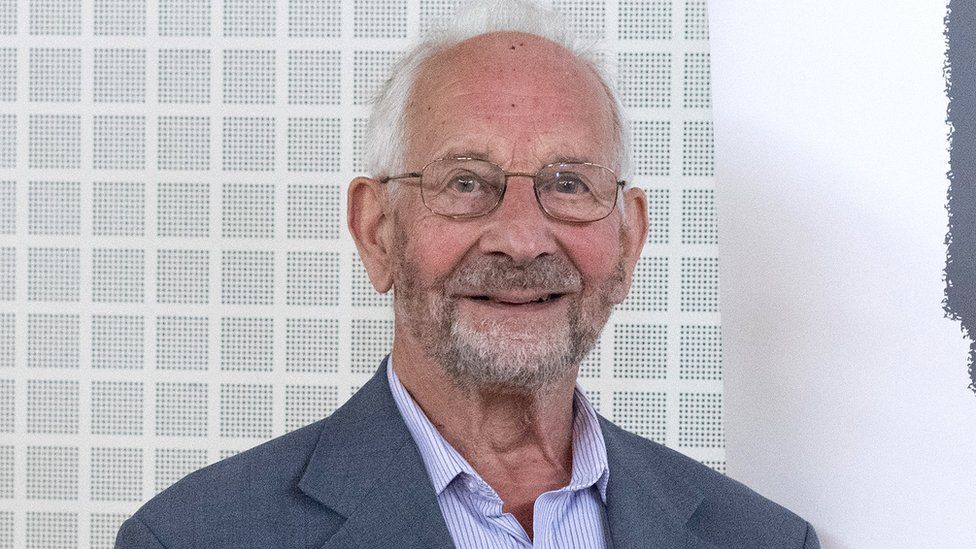-

-
-
Loading

Loading

John Fieldsend, a 92-year-old former Kindertransport refugee, vividly remembers Adolf Hitler's voice as an inescapable part of his childhood. Growing up in Dresden, Germany, loudspeakers in the streets transmitted Hitler's anti-Semitic rants, even reaching the safety of his own home. At the age of five, John experienced a dramatic change in his life as friends turned against him, becoming violent and hurling anti-Semitic insults at his family. After an accident at home, when John needed stitches, he was told by the doctor, "I don't stitch Jews." Recognizing the need to leave, John's parents drove him to his grandparents' house in Czechoslovakia. However, their refuge was short-lived as Hitler's invasion in 1939 plunged John's life into turmoil once again. This Holocaust Memorial Day, John and other Kindertransport refugees shared their stories with the BBC. The Kindertransport was a series of rescue efforts between 1938 and 1940 that brought approximately 10,000 Jewish refugee children to Great Britain from Nazi Germany. John was one of 669 children from Czechoslovakia who escaped without their parents, thanks to the efforts of Nicholas Winton, a British stockbroker. John vividly recalls the heart-wrenching moment when his parents said goodbye to him and his brother at the train station. In England, John and his brother were taken in by different foster families in Sheffield. He fondly remembers his foster parents as caring individuals and remained with them until his marriage in 1961. Now a retired Anglican vicar with three children and seven grandchildren, John resides in Oxford and continues to work with the Holocaust Educational Trust to share his testimony. Unfortunately, in 1942, John stopped receiving any news from his parents in Czechoslovakia. After World War Two ended, the Red Cross delivered a parcel to John containing photo albums and a farewell letter his parents wrote before their internment in a concentration camp in Poland. John still treasures this letter, which encapsulates the tragedy suffered by his family. As Holocaust survivors age, it becomes increasingly important to remember their stories. John believes that the Jewish community should not only present themselves as victims but also acknowledge their capacity to contribute positively to society. Karen Pollock, CBE, the chief executive of the Holocaust Educational Trust, highlights the rising antisemitism as a crucial reason for commemorating the six million Jewish victims and recognizing that anti-Jewish racism did not start or end with the Holocaust. Ruth Schwiening, now 88, was only three when she traveled from an orphanage in Berlin to London through the Kindertransport. Her father was imprisoned at Dachau Concentration Camp, and her mother was left to find a way out for the rest of the family. While Ruth has no memory of her Kindertransport experience, she has seen the devastating impact it had on others. Reflecting on her own situation, she often asks others what they would do if faced with the same decision her mother had to make. Ruth was fortunate to be taken in by Mr. and Mrs. Hart, a Jewish family in London, and recalls feeling secure for the first time while living with them. However, her mother surprised her foster family by appearing at their doorstep in March 1940. Ruth had forgotten her mother and refused to kiss her, but they were soon reunited with the rest of their family. In 1940, as World War Two intensified, Hilde feared for her family's safety. She prepared poison as a last resort if the Germans attempted to seize them. Ruth emphasizes the importance of not judging people based on religion, color, or race, and urges others to recognize and overcome their prejudices. Ruth believes that today's society would not offer the same warm welcome to refugees as she experienced. She criticizes the UK's plan to send asylum seekers to Rwanda and house migrants on a barge, questioning why the country cannot do more to support those in need.